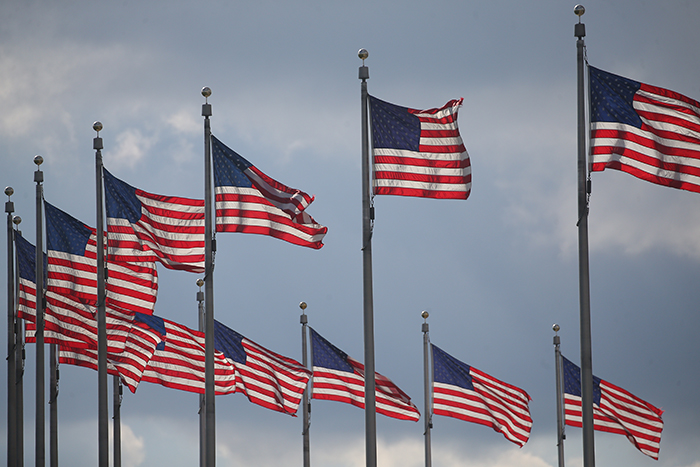Analyses / Political and Geostrategic Observatory of the United States
29 April 2025
Undermining American Foreign Policy, One Diplomat at a Time

While Donald Trump accelerates Washington’s international withdrawal and erects budgetary barriers along its borders, the study of domestic upheavals in the United States is relegated to the background, despite their significance. The new occupant of the White House is reshaping institutions and prioritising loyalty over experience — a choice that has drawn sharp criticism. The example of the new “Director General of the Foreign Service” is telling in this regard and has caused concern among diplomats, who are no longer in a position to voice their discontent.
There have been so many dizzying changes in American foreign policy since Donald Trump took office last January. The president has launched a global trade war, appears to have more or less abandoned Ukraine, and has gone on the offensive against immigrants. Donald Trump and his ally Elon Musk have had a dramatic impact on the infrastructure of American diplomacy, closing down USAID, slashing foreign affairs budgets and staffing, and severing ties with international organisations such as the World Health Organization (WHO). It’s hard to keep up with it all.
It’s even harder to track the undermining taking place within our institutions. The president outlines the broad contours of a foreign policy that is, to say the least, transgressive. At the same time, his loyalists are also focusing keenly on the details. Let’s take an example from the State Department.
I’d wager you haven’t heard of the “Director General of the Foreign Service”. Unlike many other senior officials within the department — starting with the Secretary of State — the Director General (DG) has an internally focused role. It’s one of those positions that receives little attention outside the Beltway. Nevertheless, this official is one of the key figures shaping the overall direction of our diplomacy.
The Director General is officially the head of human resources at the State Department, but the job entails far more than that. The DG sets overall personnel policy, oversees the recruitment of new diplomats, helps identify officers for the most senior posts, manages crises and overseas evacuations, resolves labour disputes, and essentially acts as the head of the American diplomatic corps. It is no exaggeration to say that it is the Director General who runs the Foreign Service. By law, the DG must be drawn from the professional ranks of the Foreign Service, and by tradition, the DG is always a very senior officer with at least one ambassadorial posting. The list of former DGs includes many of the State Department’s most accomplished career diplomats.
This month, however, the White House appointed Lew Olowski as acting Director General. A lawyer specialising in “national security”, he has links to right-wing media and organisations such as the Daily Caller and the Federalist Society. He served in Trump’s first administration at the Department of Homeland Security. Lew Olowski barely fulfils the legal requirements for his new post, with only a single assignment as a junior diplomat issuing visas at the US mission in China. Fiercely loyal to Donald Trump, Olowski brings an overtly Christian sensibility to the role. His first public appearance in the position — a speech to new Foreign Service officers — was widely commented upon in the media. Among the more notable quotations was this one, referring to the oath just taken to the US Constitution: “Oaths and words are different,” he said. “Words are for talking. Dolphins can talk. Oaths are commitments. Animals don’t make commitments. Only God and Man make commitments.” Yes, it sounds just as strange in English as it does in French.
It is unsurprising that the Foreign Service’s reaction was less than enthusiastic. The American Foreign Service Association (AFSA), essentially the diplomats’ union, issued a press release harshly criticising Olowski’s appointment.
This appointment is problematic in several respects. Firstly, he lacks the experience and peer respect required to occupy such a vital post. As a non-tenured officer with only a single foreign assignment, he will take part in selecting future ambassadors and senior officials, manage sensitive personnel issues, and coordinate embassy evacuations in war zones. As AFSA put it in its statement, appointing Olowski DG “is like placing a junior military officer, who has yet to hold command, in charge of the Pentagon’s personnel system. It undermines the structure, discipline and standards that are essential to maintaining an effective national security workforce.”
Secondly, Olowski’s “acting” appointment bypasses the Congressional oversight constitutionally required for such key positions. The Director General must be confirmed by the Senate; the temporary title of “senior official in charge” does not require confirmation. Congressional Republicans would almost certainly vote in his favour, but this interim status allows him to avoid meetings with senators and the often-gruelling hearings before the Foreign Relations Committee. Democrats have had no opportunity to question him or vet his qualifications.
Thirdly, his appointment breaks with legitimate institutional partners. Though not technically a union, the AFSA has long played a formal role in personnel matters. The relationship between AFSA and the DG’s office has alternated between cooperation and conflict, but the association remains an essential voice for American diplomats. In March, President Trump issued an executive order stripping federal employees in “national security” agencies of the right to union representation. AFSA now has no officially recognised role, and Lew Olowski will make decisions on labour matters without the union’s input.
None of this is accidental. The Trump administration has consistently sought to bring civil servants to heel. The appointment of Lew Olowski sends a clear message to the Foreign Service: “Your experience and expertise don’t matter. Political loyalty matters more than your policy advice or your knowledge of foreign countries. We are not interested in fair dialogue with the men and women working at the State Department.”
Find regular editorials by Jeff Hawkins, former U.S. diplomat and associate researcher at IRIS, in his Notebooks of a State Department Veteran.

